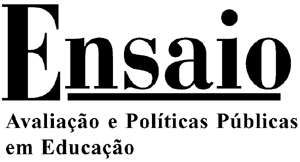Tiago Bartholo and Marcio da Costa, researchers, Federal University of Rio de Janeiro, RJ, Brasil
 The article shows that at least part of the presumed school-effect (difference in performance between schools) can be attributed to different school intakes. Possibly, the most accepted sociological assumption on schools’ differences is: pupils’ social origins are the most important source between or within-schools’ performance variation. However, the study demonstrates that not only that original difference matters, but the particular clusters of students can add explanatory power to the models.
The article shows that at least part of the presumed school-effect (difference in performance between schools) can be attributed to different school intakes. Possibly, the most accepted sociological assumption on schools’ differences is: pupils’ social origins are the most important source between or within-schools’ performance variation. However, the study demonstrates that not only that original difference matters, but the particular clusters of students can add explanatory power to the models.
In order to test the hypotheses of a school-mix effect, the authors analyzed data from the Municipal Department of Education of Rio de Janeiro, recurring to statistical devices, including multilevel modelling for results of Prova Rio, dataset of pupils and families’ characteristics and schools’ profiles.
The debate about social segregation among public schools ought to be taken seriously by educational researchers. It is closely linked to the debate about the quality and equity of educational systems and to the subject of social justice. Public schools in modern societies have become central institution that should provide, at least theoretically, equal opportunities for all individuals, enabling social mobility. Evidence from different educational systems suggests that clustering pupils with similar characteristics can influence how they are treated at school, the quality of teaching, the aspiration to advanced education subsequent to the compulsory level, and an increasing association between academic achievement and socio-economic status.
The paper “Evidence of a school composition effect in Rio de Janeiro public schools” was published in the Ensaio Journal, Fundação Cesgranrio, Brazil, and the results corroborate the initial hypothesis. At least part of a purported “school effect” could be explained by a particular mix of pupils. It is important to highlight that the city of Rio de Janeiro presents lower levels of school segregation compared to other capitals in the country, as Costa and Bartholo have showed in another recent publication.
Publications about school effects in Brazil (and high-stakes policies) usually disregard the potential impact of clustering disadvantaged pupils in particular schools. The final models highlighted the potential impact of clustering non-white pupils and those living in poverty (measured considering families eligible for conditional cash transfer policy, such as “Bolsa Família”). Moreover, the analyses indicate the need for discussion about regulatory mechanisms that could prevent public bureaucracy from being an extra source of educational inequality in a country persistently enlisted amongst the most unequal in the world. The article also calls attention to the need of caution on using educational performance results for some policy decisions.
To learn more about this topic, be sure to listen to the podcast!
Sobre Tiago Bartholo
Tiago Bartholo é doutor em educação pela Universidade Federal do Rio de Janeiro (bolsista CAPES). Professor do Programa de Pós-Graduação em Educação da Universidade Federal do Rio de Janeiro (PPGE-UFRJ) e do Colégio de Aplicação da Universidade Federal do Rio de Janeiro (CAp-UFRJ). Atualmente é Diretor Adjunto de Licenciatura, Pesquisa e Extensão no CAp-UFRJ e tem interesse na temática da avaliação de sistemas/intervenções educacionais e suas relações com equidade e eficácia escolar. Contato: tiagobartholo@gmail.com
Sobre Marcio da Costa
Marcio da Costa tem graduação em Ciências Sociais pela Universidade Federal Fluminense (1982), mestrado em Educação pela Pontifícia Universidade Católica do Rio de Janeiro (1992) e doutorado em Sociologia pelo IUPERJ (1998). Atualmente é professor associado da Universidade Federal do Rio de Janeiro, Coordenador do GT Educação e Sociedade da Sociedade Brasileira de Sociologia, desde 2004. Tem experiência na área de Educação, com ênfase em Sociologia da Educação, atuando principalmente nos seguintes temas: sociologia da educação, política educacional, teoria sociológica, avaliação de políticas públicas e avaliação educacional. Contato: marcioc@pobox.com
To read the articles, access
BARTHOLO, T. L. and COSTA, M. Evidence of a school composition effect in Rio de Janeiro public schools. Ensaio: aval.pol.públ.Educ. [online]. 2016, vol.24, n.92, pp.498-521. [viewed 22th August 2016]. ISSN 0104-4036. DOI: 10.1590/S0104-40362016000300001. Available from: http://ref.scielo.org/s25k9z
External links
Ensaio: Avaliação e Políticas Públicas em Educação – ENSAIO: www.scielo.br/ensaio
Facebook Ensaio: https://www.facebook.com/ensaiorevista/
Twitter Ensaio: https://twitter.com/revista_ensaio
Blog Ensaio: https://rensaio.wordpress.com/
Como citar este post [ISO 690/2010]:














Últimos comentários